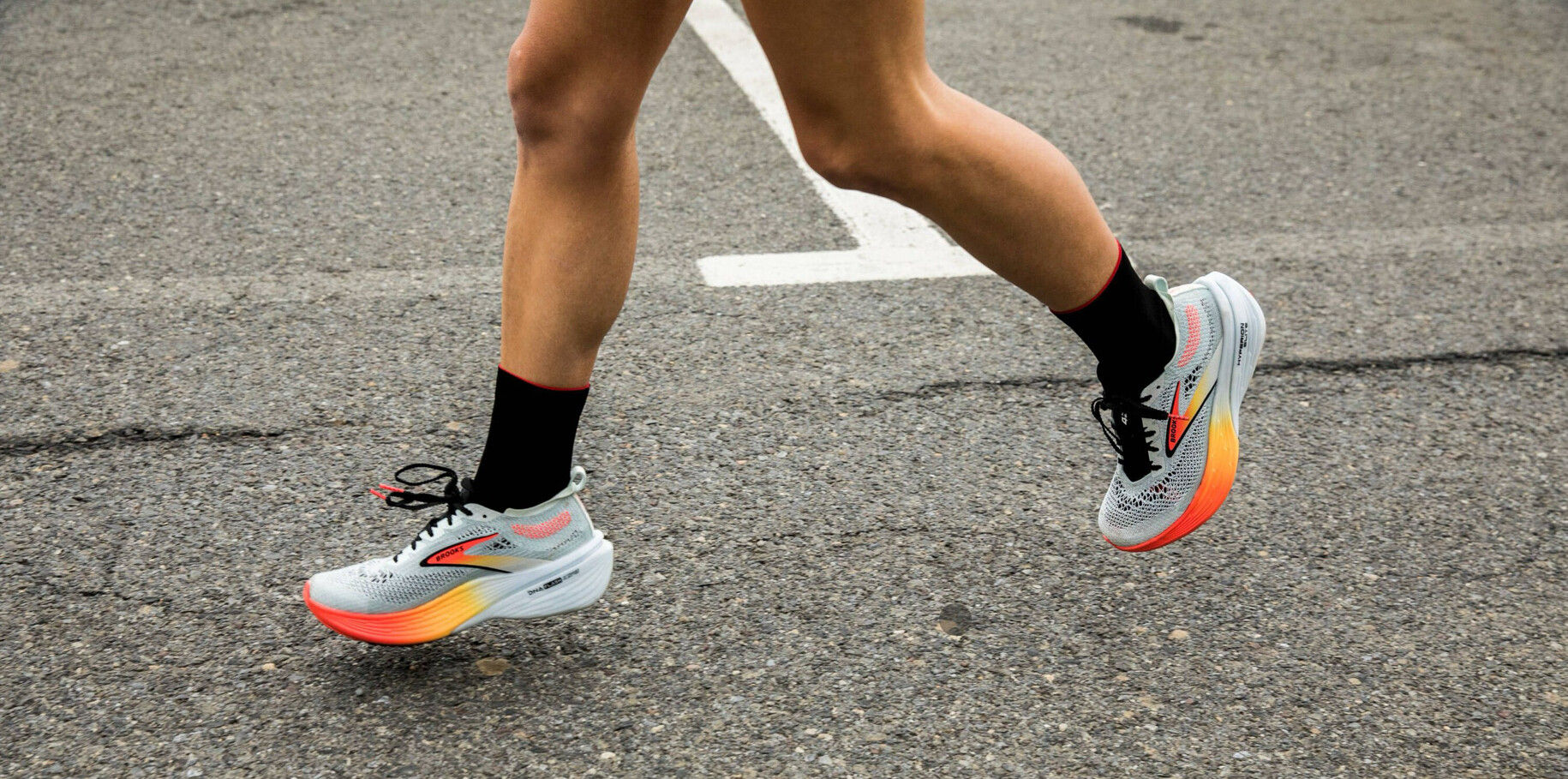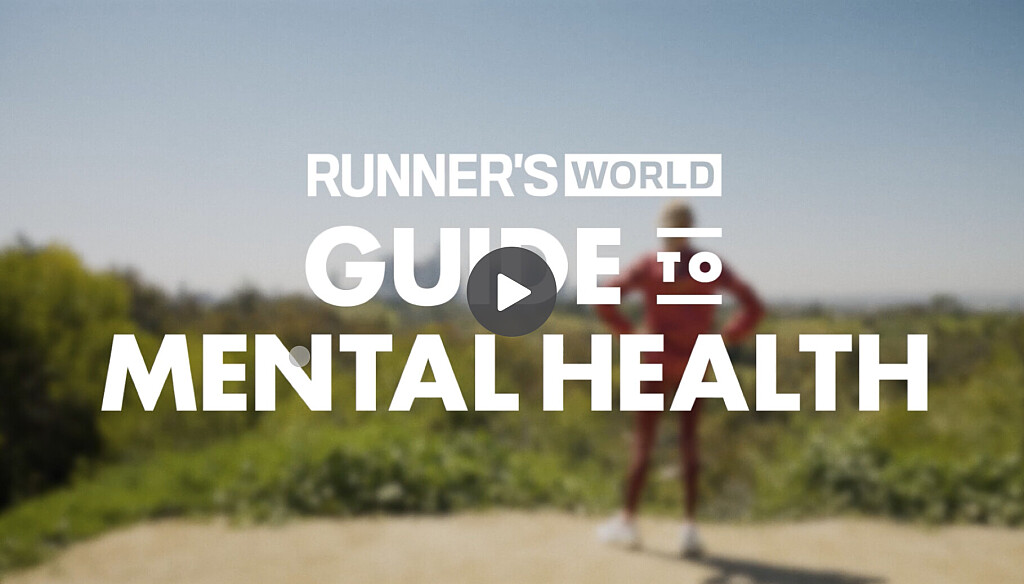Running News Daily
Running News Daily is edited by Bob Anderson. Send your news items to bob@mybestruns.com Advertising opportunities available. Train the Kenyan Way at KATA Kenya and Portugal owned and operated by Bob Anderson. Be sure to catch our movie A Long Run the movie KATA Running Camps and KATA Potato Farms - 31 now open in Kenya! https://kata.ke/
Index to Daily Posts · Sign Up For Updates · Run The World Feed
How to Use Running to Overcome Your Anxiety, According to Experts
If you have running anxiety instead of finding relief in the movement, here’s why and how to change that.
I learned that I suffer from anxiety when, some 10 years ago at the age of 20, I checked myself into a hospital for what I was convinced was an impending heart attack. My chest felt tight, my breathing rapid, my head spinning, arms tingling. I couldn’t think straight. After a series of tests, the ER doctor told me that physically, I was healthy. Then he gently suggested what I’d just experienced may have been a panic attack.

That a mental state could manifest itself as physical symptoms was a complete revelation to me. I’d experienced a variety of them before (usually attributing them to post-illness recovery or environmental reactions) but not at this magnitude. To help treat my anxiety, among other things, he recommended aerobic exercise. Because of its low barrier to entry, I turned to running.
My controlled treadmill runs went fine, but the moment I ran outside, it took a mere few minutes before a wave of tension washed over my body, leading to the symptoms I knew so intimately: shortness of breath, a fast-beating heart, sweating. Running made me more anxious, I figured. I tossed the idea—together with my running shoes—in the corner, and that was where my short-lived running venture ended.
It would take years for me to lace up my running sneakers again. I had to learn about how to get into running gradually and pace myself, along with accepting that I can walk when I need to. Now, running helps me manage my anxiety in ways I’d never expect.
After talking to other runners and psychologists, I learned that my situation isn’t unique. So with the help of experts, we’re sharing tips on how to make running work for your anxiety, alleviating your symptoms instead of exacerbating it.
What is anxiety?
Anxiety is the world’s most common mental health disorder, according to the World Health Organization (WHO).
“We have fear and we have anxiety,” says Arash Javanbakht, M.D., a psychiatrist and director of the Stress, Trauma, and Anxiety Research Clinic at Wayne State University, and the author of AFRAID: Understanding the Purpose of Fear, and Harnessing the Power of Anxiety. “Fear is when I’m perceiving a danger that is clear and identified. Anxiety is a vague state of fear when I’m worried about something happening with no specific thread detected yet.”
Around the world, 301 million people had an anxiety disorder in 2019, WHO reported, and although it’s highly treatable, only one in four people receive treatment.
We think of anxiety in two ways, says Jacob Meyer, Ph.D., an associate professor of exercise psychology and the director of the Wellbeing and Exercise Lab at Iowa State University. There is state anxiety, which is situational and can fluctuate throughout the day. Then there is trait anxiety, which, unlike state anxiety, stays with the individual and is thought of as less modifiable but can potentially improve with the right intervention over time.
Running can be part of this intervention.
What is the link between running and anxiety?
Running is scientifically proven to positively affect not only your physical, but also your mental health.
“People who exercise generally feel less stressed, less depressed, less anxious, less fatigued, more energetic, and tend to have better cognitive function,” Meyer says. “Almost any psychological process you might be worried about, at least in the short term, can be influenced positively by exercise.”
Zooming in on anxiety specifically, running can play an important role in treating the mental condition because it triggers the release of neurotransmitters like serotonin, a chemical that acts as a natural mood stabilizer, and a lack of which is linked to anxiety. It plays a role so important, in fact, that we dedicated a whole section to the science of it in The Runner’s World Guide to Mental Health.
As a plus, exposure to physical symptoms of anxiety can have a therapeutic effect, as you’ll learn to feel safer and more comfortable with these symptoms.
“Your brain automatically feels less worried about, say, increased heart rate or a tightness in the chest because it has happened over and over in a friendly environment where you had fun and nothing bad happened,” Javanbakht says.
By running, you’re creating more resilience against anxiety and exerting a bit of control over the situation.
How can you overcome running anxiety?
Understanding the science behind running’s positive influence on anxiety is a great first step toward utilizing the sport to improve your mental health. Here are some more suggestions on how to overcome running anxiety:
Get the official “clear”: If you have medical concerns, talk to your doctor to ensure you’re physically healthy and have no reason to worry about the sudden increase in heart rate or shortness of breath that aerobic exercise causes.
Start exposing yourself to running: If you previously thought of your running symptoms as anxiety symptoms, you created a link in your head that needs to be rewritten. One tool to help you do that is exposure therapy, especially in a controlled environment, like on a treadmill. “You crank it up, you feel your heart rate and your breathing getting labored, then you turn down the intensity,” says Jennifer Heisz, Ph.D., an associate professor in the department of kinesiology at McMaster University and the author of Move The Body, Heal The Mind: Overcome Anxiety, Depression, and Dementia and Improve Focus, Creativity, and Sleep. “As you watch all those body symptoms return to baseline, you realize you’re okay. In theory, exposing yourself to those symptoms can create a habituation to them so they’re not as fear-provoking.”
Keep your run under control: Slow progress is key. While on the run, reach the level of anxiety you can tolerate, say four or five out of 10 on a scale of perceived exertion, and stay there, Javanbakht says. Don’t let it get up, instead, stay with it until it recedes. “You have now developed a new learning,” he says. “Master this level, don’t rush it because, at the same time, you’re gaining confidence. Then you can move to the next level of exertion. Gradually, you’ll overcome your anxiety.”
Find a running buddy or group: “Social support is a major factor in how people feel in response to activity,” Meyer says. Surround yourself with like-minded runners who match your pace and goals. From helping you keep it slow while chatting to distracting you from your symptoms, experiencing running alongside others, and having a support network right alongside you goes a long way—and so does accountability.
How can you deal with anxiety if it comes up on the run?
The anxious state often arrives unexpectedly. If you feel anxiety creeping up while running, try the following strategies:
Repeat to yourself: You’re safe: If your anxiety doesn’t have any roots in your physical state, reminding yourself that you’re safe can help reduce the feeling of anxiety, Javanbakht says. Remember that most of your anxieties are false alarms.
Reframe your thoughts: When you start experiencing symptoms you perceive as anxiety, such as sweating, instead of negative concerns, try to link it to a positive thing, being caused by the movement you’re doing. “Think, how do I link my behavior to my feelings in an intentional and systematic way? Let’s make it my goal to reorient the way I think about sweating,” Meyer says. The same goes for other symptoms. Reframe them as you go.
Practice mindfulness: Anxiety means that your mind is in the past or the future, instead of the present. Mindfulness exercises can help bring you back to your body. While on the run, pay attention to the sounds you hear, or look around and list the colors you see, with all its shades, Javanbakht says. You can use all five senses, including your bodily feelings, to ground yourself in your body and the present moment.
Try humming: In one of the latest podcast episodes of Brene Brown’s Unlocking Us, Esther Perel, a psychotherapist, explained the soothing benefit of humming, which not only recreates the sounds heard by a baby when still in utero and the sensation of hearing the voice on the inside, but also, while humming, you’re very likely to focus on doing that instead of other worries on your mind. “When you hum, you create a barrier, a space between the thought that is creating the anguish and your nervous system,” Perel says.
What if anxiety perseveres?
On days when you go for a run already feeling anxious, be extra kind to yourself. Your heart rate may be elevated or you may already feel short of breath going into it, so take it slower than you normally would. Taking a break from tracking metrics on apps like Strava and letting go of expectations may be beneficial.
“Uncoupling exercise from performance for mental health may help,” Heisz says. “On days I’m not feeling very good, I take the intensity off and just put in the time. More of a compassionate approach to exercise is absolutely necessary.”
In the end, just remember that you’re not anxious as your default, you just have anxiety. Not every run will feel like a million bucks, but it doesn’t mean that running isn’t your thing. Tomorrow is always another day for another run.
As for me, it’s been a long journey to get here. These days, I run to soothe my anxiety, to silence it while being in control of the symptoms that once stood in my way. Hand-in-hand with therapy, I found it to be the best tool to help me make it through any day, but especially the ones ridden with anxiety. I may have been skeptical once, but I now believe that running is for everyone.
Login to leave a comment




